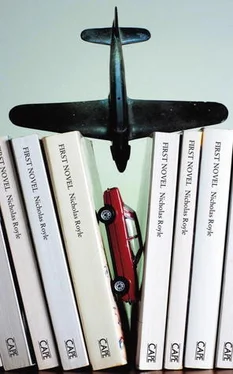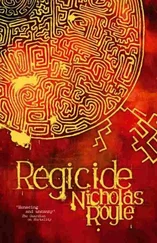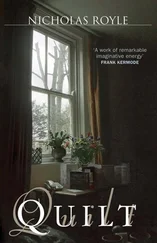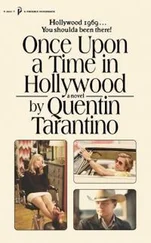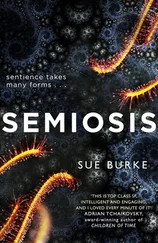Helen climbs off me, still laughing or laughing again. I don’t know what is funny.
‘Look,’ she says.
The car is surrounded by cows. At the windscreen, the driver’s window, the back passenger window and the rear windscreen, cows stand with their great heavy heads pointed towards the interior of the car.
‘How long have they been watching us?’ Helen asks.
‘I don’t know,’ I say, as I study their long eyelashes, their indifferent gaze.
‘It’s like yesterday morning,’ says Helen, ‘when I read my piece about me and you in your car and everyone around the table was staring.’
‘Were they?’ I say, looking at her and then back at the cows surrounding the car, their huge jaws sliding from side to side like machines made of flesh.
‘You know Grace?’ she says.
I look at Helen again.
‘Is she for real?’ she says. ‘Is she authentic?’
‘One might ask you the same question,’ I say.
Thursday evening. Everyone is gathered in the snug. It’s Grace’s turn to read. Half the students are reading tonight, the other half tomorrow. Of those who are reading tonight, all but two have already read and their performances have been received with due warmth and enthusiasm, but there’s an obvious tension in the air, a sense among the students that Grace is not done yet.
She has been sitting slightly apart, in a corner of the room. It’s a small room and there are a lot of people; someone has to sit in the corner. But still.
She slides forward to the edge of her seat and looks up. Having secured the attention of everyone in the room, she looks down and starts to read.

Most people never meet a murderer. Jonny met two.
At the time when Harold Frederick Shipman was committing his crimes, no one knew he was a killer. One or two had their suspicions; eyebrows were raised and checks were made, followed by more checks, but Shipman went on killing. And although Jonny’s nana died almost certainly at the hands of her doctor, that’s another story, one that would begin to be told three years later in court. Convicted in January 2000, of fifteen murders, Shipman was told he would spend the rest of his life in prison.
He did.
On 13 January 2004 he hanged himself in his cell using bed sheets tied to the bars of his window. He was fifty-seven, just a day shy of fifty-eight.
Jonny was fourteen.
The first report of the Shipman Inquiry, which followed the trial, had already concluded that the former doctor had killed 215 people. Jonny’s nana was not named among them, but that figure would later be revised upwards. The thing was, no one would ever know for sure how many killings could be attributed to Shipman.
Jonny kept files. He had an ever-growing collection of box files filled with press cuttings on the Shipman case. His copy of Brian Whittle and Jean Ritchie’s Prescription For Murder: The True Story of Mass Murderer Dr Harold Frederick Shipman fell apart through overuse.
Puberty hit Jonny like a train. Nicholas or Liz would often find themselves knocking timidly on the bathroom door to ask Jonny if he was all right, he’d been inside for so long. But shaving your legs and your chest and your armpits took a while and so did deliberately cutting your arms and then waiting for the bleeding to stop.
There were no girlfriends. There were no boyfriends. There was a crush on a rather butch English teacher called Miss Fletcher that was never really going to go anywhere, but Jonny took up all her recommendations for books to read. He was behind in some subjects (science, maths), but he excelled in English.
Nicholas and Liz were determined not to spoil Jonny, but what harm could it do to let him have a laptop and a broadband connection in his bedroom? Like any fourteen-year-old boy, Jonny used the Internet to look at porn, but his consumption of it was not straightforward. He didn’t especially like looking at pictures — or videos — of naked women unless they were accompanied by men, and soon he started to wonder if it was the men he actually wanted to look at. So he tried gay sites, but that didn’t make the issue any clearer. He didn’t know what he liked and he felt he ought to like one or the other. But something inside him was stopping him from developing a preference. He wondered if it was grief or anger, but it didn’t seem as direct as that. If he felt desire it was a desire for change, a need to put something right that felt wrong. His dissatisfaction and confusion were linked to what had happened to him, he was sure of that, not so much tied to Nana’s death but to an earlier tragedy that was never spoken of in his adoptive family.
One of Jonny’s box files contained press cuttings on Shipman just like all the others, but only on top. If he delved a little way down, he would find his secret collection of cuttings on the murder of Laura Taylor and the attempted murder of Jonathan Taylor, twins, aged three. There were blurry pictures of his natural father, whom he hadn’t seen since the tragedy. Jonny had been in touch with the Probation Service and found out that his father had spent time in Strangeways and Parkhurst, but since 1999 he had been incarcerated in Wakefield Prison, coincidentally where Shipman ended his days.
When the news broke about Shipman’s suicide, Jonny thought for the hundredth time about his father being within the same prison walls as the mass murderer. Had he and Shipman known each other? Had they ever eaten together or folded sheets in the laundry at the same time? But then Shipman was gone and Jonny found that his interest in his nana’s killer waned. He kept the files only to conceal the one he maintained on his father.
There was love in Jonny’s life; he knew that his adoptive parents were doing their best in difficult circumstances. They cared for him in every sense of the word. They offered affection, which he found impossible to accept. It was like being handed a piece of machinery he didn’t know how to use. He felt nothing. Still there was no attraction to other girls — or boys. His flickerings of desire for Miss Fletcher guttered and died. He had an idea, which he’d had for some time and not expressed to anybody. It bubbled away in the back of his mind like a spring in a cavern. He frequented chatrooms, called helplines, saw the family GP, who refused Jonny’s initial request point-blank and offered to refer him instead to a psychologist. Pragmatically, Jonny took up the referral. He told Nicholas and Liz that he had issues around grief, trauma and bereavement, which of course was true and would always be true, but when he got to see the psychologist he told her what was in his mind and he reminded her that she was bound by the Hippocratic oath. When she looked doubtful, he insisted that he was Gillick competent. In just over a year’s time, he said, he would be sixteen. He had similar discussions with the GP, who said there would be no question of acting before Jonny’s sixteenth birthday, with or without the written consent of his adoptive parents.
What had been an idea became a plan, a project, an obsession. It began to seem to Jonny to represent his only chance at any kind of a life. Not just for him, either. That was the point, really. For his sister.
Why should he have been the one to survive? Why not Laura? Maybe if she had survived and he had not, she would have felt the same as he did, that it wasn’t right, that what had happened wasn’t itself survivable, even for the survivor, without drastic action, fundamental change. Maybe, maybe not. Either or. Either him or her, or her or him. Either one or the other. This was how the cards had fallen — one face up, one face down. All he knew was he couldn’t go on the way things were. There was just a chance that by acting now, he could achieve a kind of resurrection, the twins reunited in a single body, in a state of grace.
Читать дальше
